Associated Partners
SPAIN
IES Ribeira do Louro
The IES Ribeira Do Louro (IESRdL) is a secondary education school which provides general education, vocational training and adult education courses. It is placed in Porriño (Pontevedra) in the southwest of Spain, next to Vigo. IESRdL has approximately 700 students and 80 teachers and provide, amongst other specialist courses, Advanced Level Training courses in International Trade, Administrative and Financial Management and Telecommunication Systems and Information Technology.
The Ribeira do Louro Institute presents a great homogeneity from the socio-cultural point of view, although the origin of the students is heterogeneous because they come from a wide geographical radius, with a mixture of rural and semi-urban.
O Porriño is mainly the head of an industrial sub-region of the Vigo region. It acts as an alternative to the industrial expansion of this area, but also has its own dynamics in some industrial and mining (granite) sectors. He has owned an Industrial Estate since the late sixties, recently expanded into new land by the Free Zone of Vigo. In Porriño there are many industries located among the largest in Galicia, almost all of them SMEs (Small and Medium Enterprises).
The objectives of this organization must be carried out according to three fundamental tasks:
– the preparation of the students of their educational zone in the general training
– the preparation of the students of the vocational training courses for their future integration work
– the extension and updating of the right to education of the most disadvantaged sectors of the adult population, regardless of their age and condition.
The school has a huge experience (since 1996) in the implementation of European Union research and mobility projects. IESRdL has participated, both as a partner and as promoter, in different projects under Lifelong Learning Programme, Leonardo da Vinci and Socrates Programme, Interreg and other national projects. Furthermore, IES RdL has been participating in mobility projects since 1996, as host and sending organisation. They have carried out more than 300 students and teachers placements.
Collection of asbestos leaves for drying and storing.
Later, in a second phase, these sheets will be inserted into the corresponding meshes and placed in the river for a few weeks.
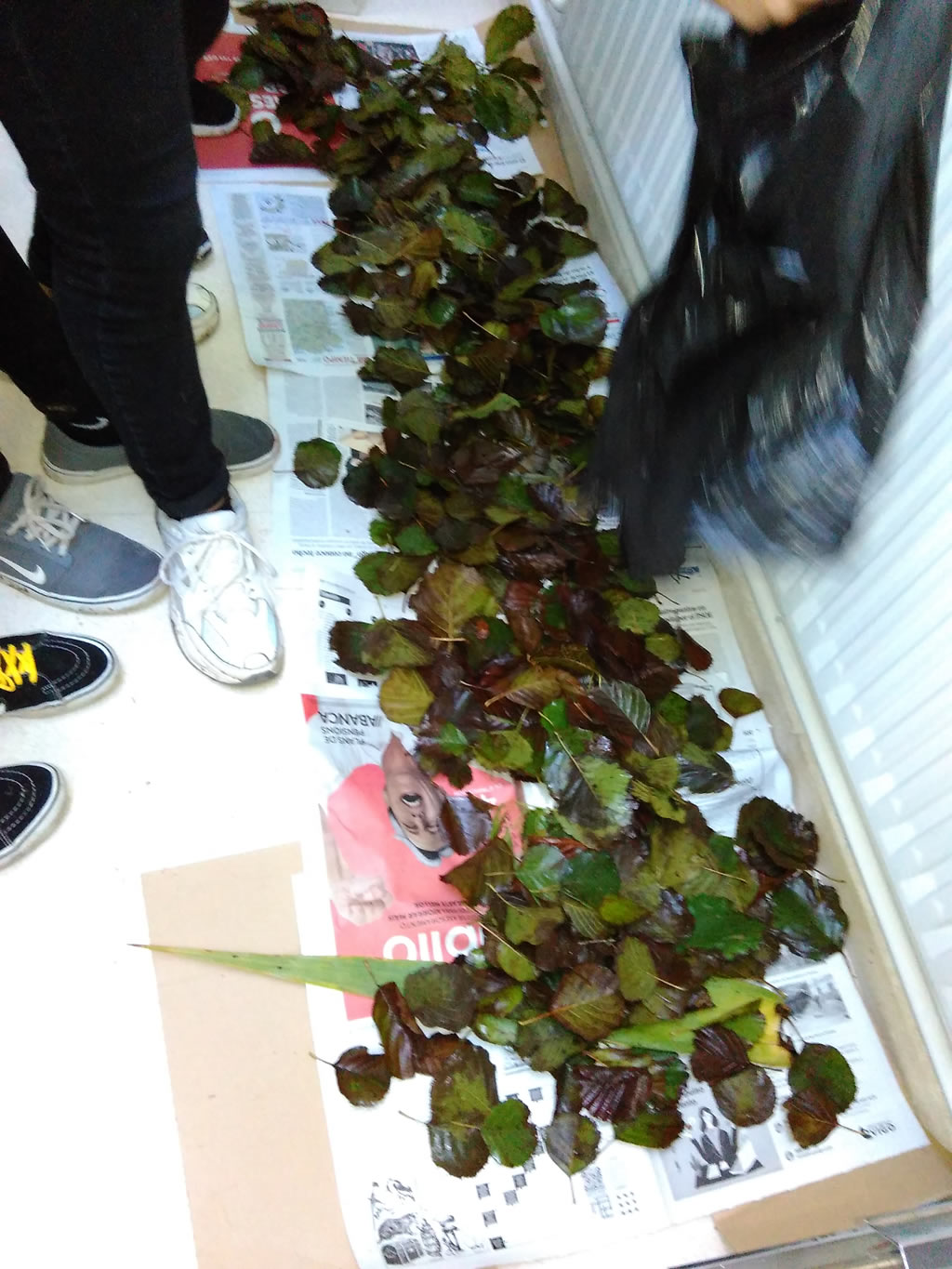
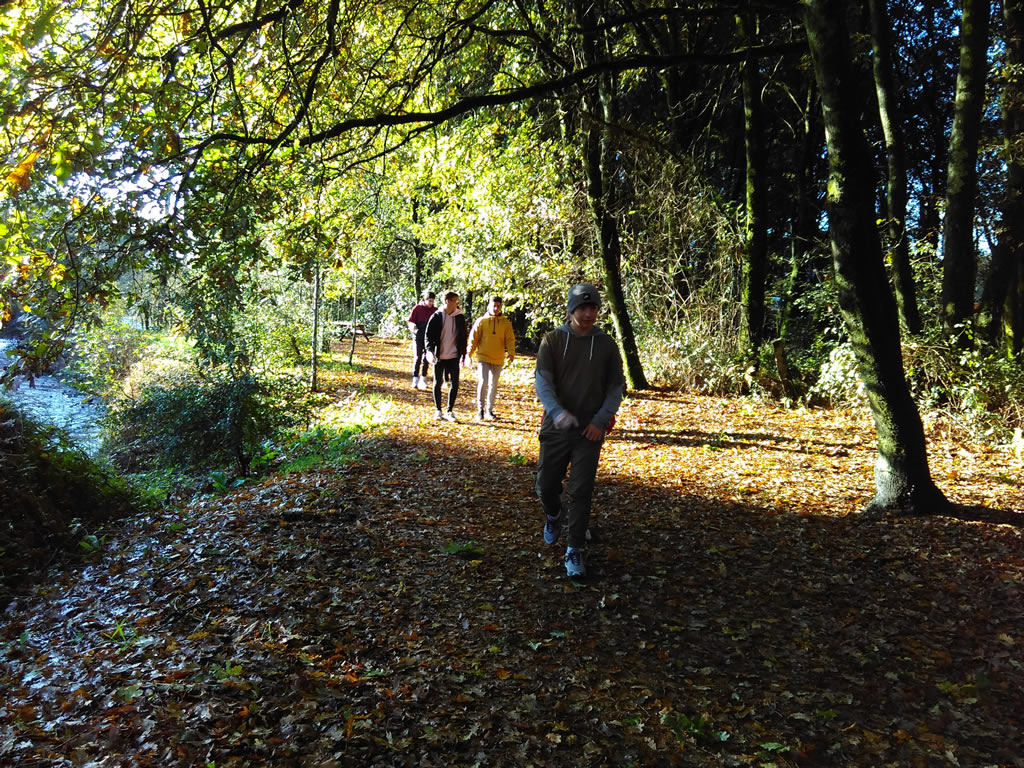
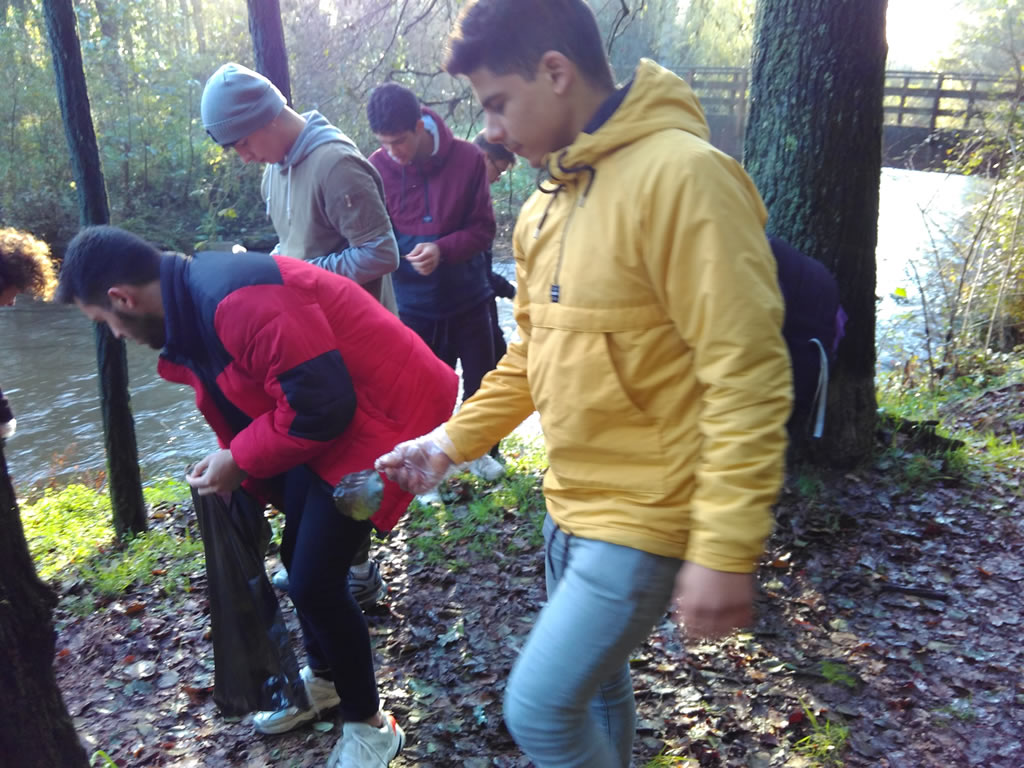
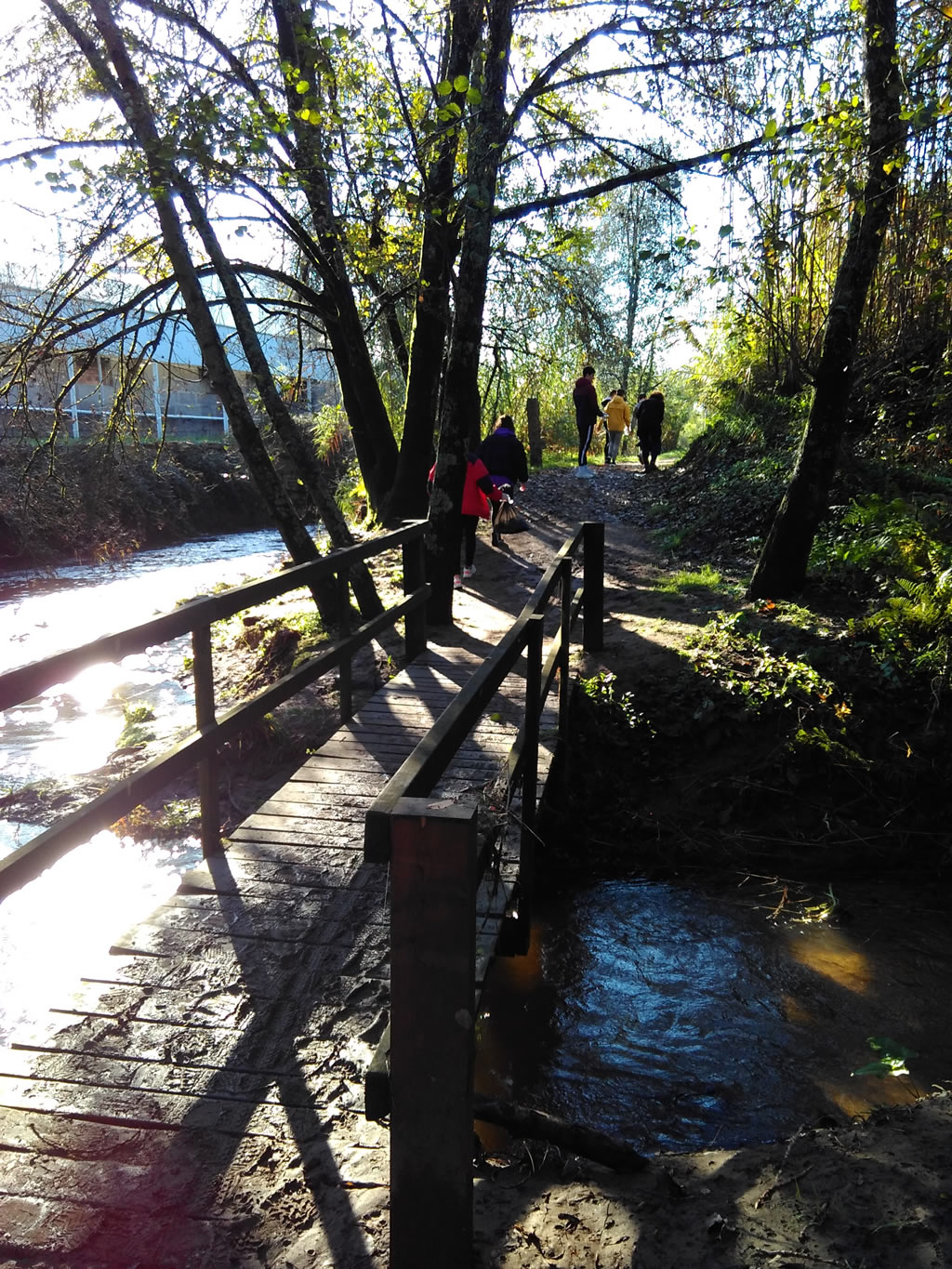
“Gymkhana on IES Ribeira do Louro”
This activity, carried out on March 5th 2020, consisted of a gymkhana with a series of tests prepared by the group of students of IES Ribeira do Louro, in the Livingriver project. The tests were related to the different parts studied in our Louro river: general information of the river (length, source, mouth, route …); flora (indigenous and invasive); fauna (native and invasive or exotic); river recovery or restoration measures; environmental impacts and ethnography (uses of the river throughout history).
Each of these parts represented a station through which each group of students had to pass (in total the students were divided into 5 groups with 6 students each) and in which they had to solve a series of tests to get a letter and to be able to guess the words that made up the final message ( see in the photos “Livingriver Ribeira Louro Porriño Fronsac.” The tests were very varied, from riddles, tests, games, puzzles, diptychs , etc. The winning team received an award.
With this activity the students of the IES Ribeira do Louro have shown river Louro to the French students and teachers, and also the students and teachers of other training centers in O Porriño (CPI Santo Tomás, CPI Hermanos Quiroga and CEIP Santa Mariña), and presented, at the same time, the Livingriver project.
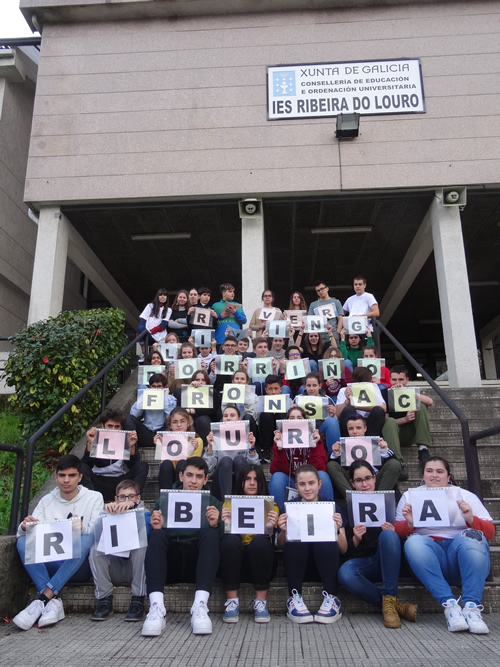
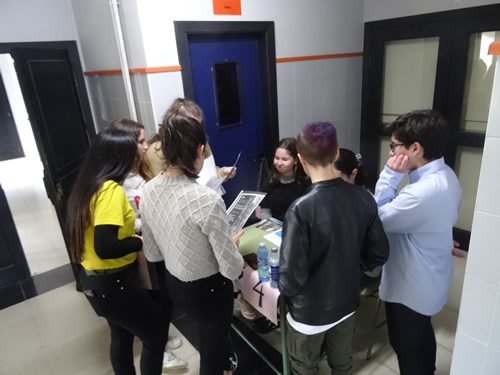
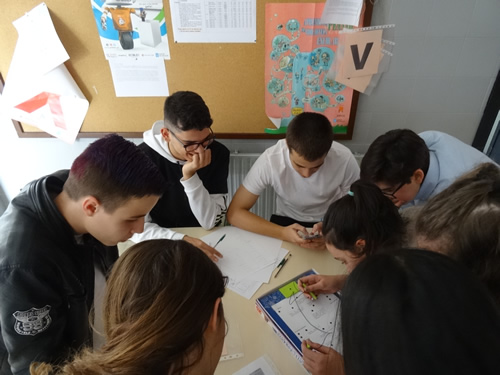
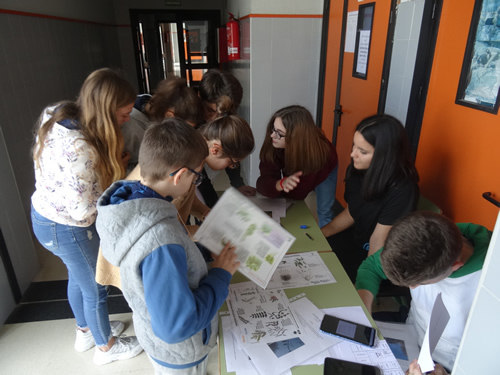
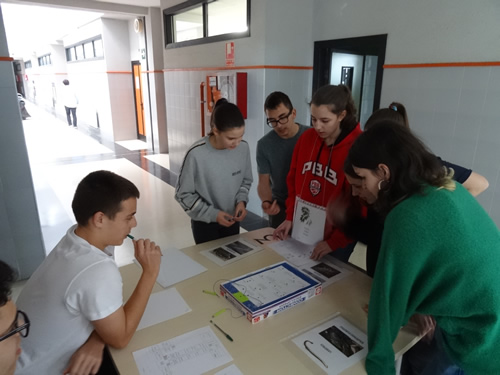
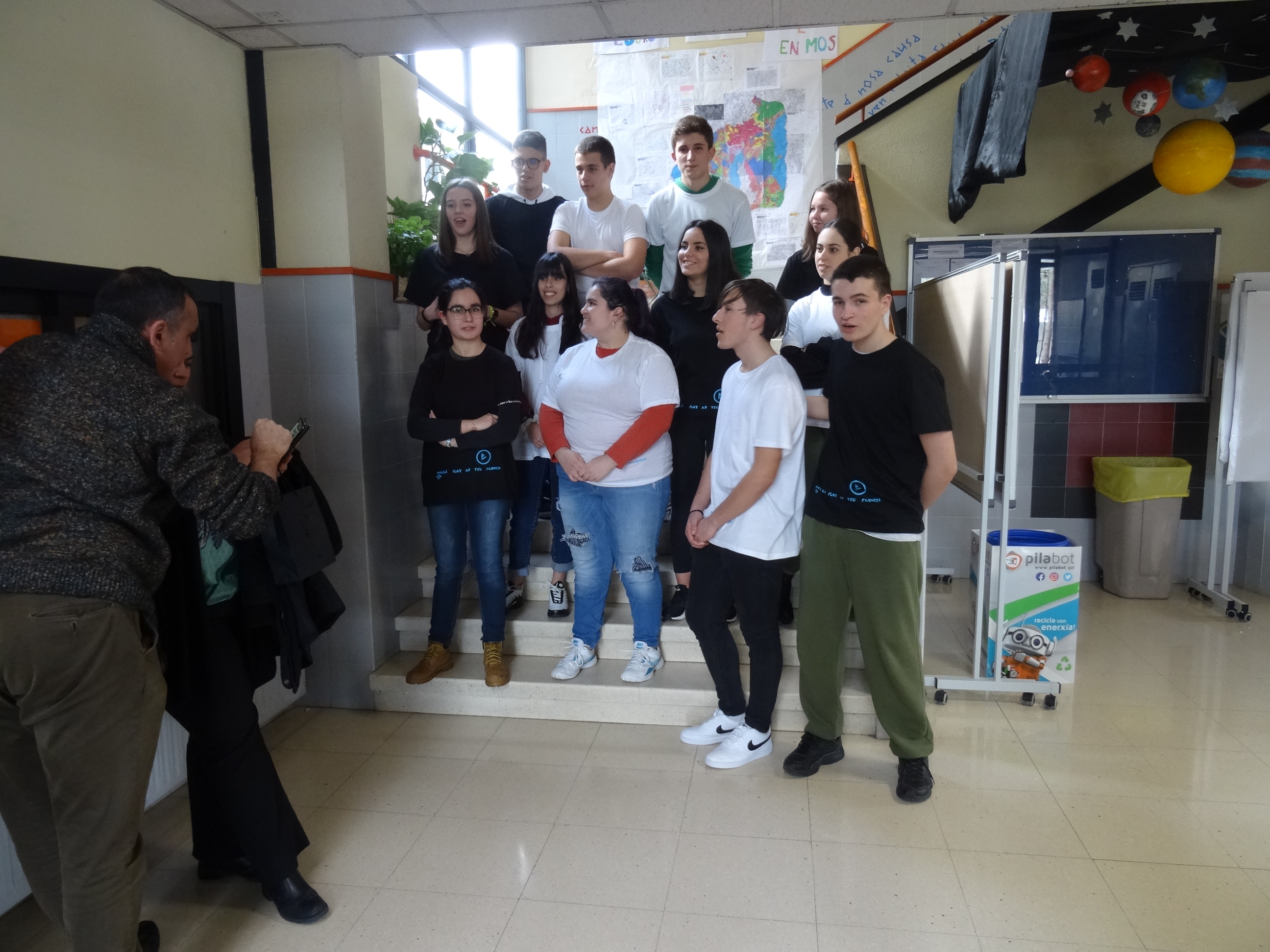
Livingriverproject
For yet another year we continue to work on the international Livingriverproject. The main objective is to value the life of rivers and streams to create public awareness for their preservation.
Institutes from Turkey, Romania, Portugal and Spain, specifically Galicia (IES de Melide, IES de Brión, IES Xelmírez de Santiago and IES Ribeira del Rubio, which is also a partner) participate in this project. Also the universities of Balikesir, Coimbra and Lisbon and centers such as ASPEA, ADEMA and Agenț ia Metropolitană Brașov.
The department of Biology and Geology is in charge of the experimental scientific part consisting, on the one hand, in the study of the biodiversity (fauna and flora) of the banks of our Louro River, paying special attention to protected species and invasive species and its effect on ecosystems. On the other hand, we carry out measurements over time to characterize the physical and chemical parameters of the water, such as pH, dissolved oxygen, temperature and turbidity; that, together with the decomposition rate of organic matter (alder leaves) deposited in the water for a time, had allowed us to determine the quality of the water in our river.
To carry out this work, the two professors from the department involved in this project, Marta and Macu, travelled to the University of Coimbra to receive the necessary training to implement this experience, along with the rest of the professors from other countries. This training course took place from October 20 to 24.
From the first moment, there was a group of very involved students, eager to learn and experiment, who did not mind staying in the afternoons to advance their work. There are 12 students from the subject of Biology and Geology of 1st Baccalaureate: Jorge, Matías, Ana R., Lucía, Verónica, Ana M., Paula, Ainhoa, Eric, Miriam, Antonio and David.
Thus, taking advantage of the visit of French students from the Bordeaux area, they prepared an activity, carried out on March 5, which consisted of a gymnasium with a series of tests based on different aspects worked on our Louro river such as: general information about it (includes length, birth, mouth, path, …); flora (native and invasive); fauna (native and invasive or exotic); river recovery or restoration measures; environmental impacts, and ethnography (uses of the river throughout history, …).
Each of these parts represented a station through which each group of students had to pass (in total the students were divided into 5 groups with 6 students each) and them they had to solve a series of tests to get a letter and guess the words that made up the final message. The tests were very varied from riddles, hobbies, quizzes, games, puzzles, diptychs …The winning team received a gift.
Our students with this activity showed, in a different way, to the French students and teachers, and also to the other O Porriño schools (CPI Santo Tomás, CPI Hermanos Quiroga and CEIP Santa Mariña) our Louro River and also the project Livingriver in which we participate.
Everything was going very well, and we began to prepare the devices to take to the river, when something unexpected surprised us. The state of alarm was declared, an unprecedented health crisis, which ended with active and public life, which confined us to our homes, and changed the way of doing things. The face-to-face school life was paralyzed, with which the project was delayed until conditions and health authorities allow it.
The visit of these students to the Alves Martin de Viseu Secondary School was scheduled for April to show them the work done and make a comparison with the river they are working on. Taking advantage of this trip, we had planned a geological route through the Arouca Xeopark and another through the Bertiandos Lagoons, but the pandemic caused by the COVID-19 coronavirus prevented these exits.
Therefore, we still have a lot to work on and many exits to do; and we hope to continue having this fantastic group of students.
You can have a look at the article in the magazine OrbitaXV
